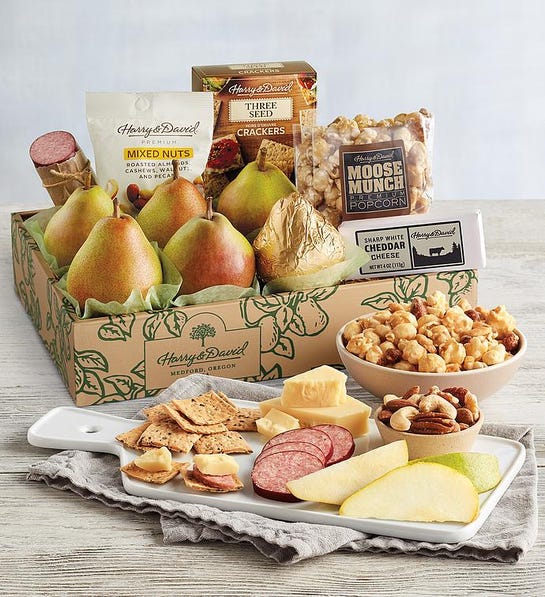Harry’s Gift Box | Specialty Food Gift Boxes | Harry & David
Harry’s Gift Box, named after our founder, features some of our most popular sweet and savory snacks. Favorites like hickory-smoked summer sausage and three-seed crackers are perfectly complemented by two of our signature sweet treats: juicy pears and classic caramel Moose Munch® Premium Popcorn.






Reviews
There are no reviews yet.